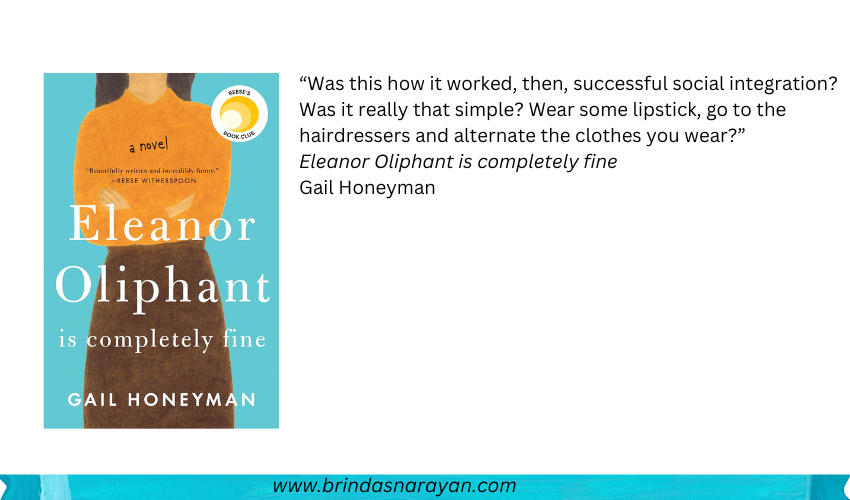
From Bridget Jones to Eleanor Oliphant: Imperfect Protagonists and Unlikely Friendships
Bridget Jones broke a certain stereotype. That romcom protagonists must be, by default, somewhat put together. Till then, they were often fiercely intelligent, sparkly with words, discerning, virtuous et al, till Jones swept into our cultural lenses with her endearingly human, ordinary vices: drinking, smoking, chomping junk food and helplessly soaking up a stash of self-help.
Eleanor Oliphant in Eleanor Oliphant is completely fine casts a new light on a familiar human condition, that might have stoked discussions after Renee Zellweger zapped Jones into our living room screens. It’s a condition that the United States surgeon general issued a warning about, and one that might be more necessary for our health and well-being than most societies would care to acknowledge: loneliness. This isn’t just a Western scourge. In India too, as per a survey conducted by Ipsos, 50% of Indians expected to experience loneliness for large chunks in a year.
But this isn’t just a novel about loneliness. It’s also refreshingly enough about the forging of a relationship between a 30-year-old single woman and a male colleague, Raymond, that’s not romantic. Shattering the false and sometimes-prevalent notion that you can’t share a close, platonic tie with someone of a different gender. It’s a friendship that feels all the more extraordinary because Eleanor is not immensely likeable to begin with. It’s not only about her being messily real, she’s also judgmental with a sense of inbred superiority, a weird way of looking at the world that we realize later (spoiler alert!) stems from a devastating childhood event.
Inside the office, she occupies a position that’s easily overlooked: that of an accounting clerk. She’s quietly diligent, mostly keeps to herself and is noticed only when she’s absent. Her life is circumscribed by routines. Each Friday, she buys herself pizza, two bottles of vodka, and drinks her weekends into a haze till another Monday looms. This predicable routine is interrupted at first by a delusional obsession with a local musician. Whom she starts stalking online, even as she casts herself into an imagined future with him. Then she and Raymond unexpectedly rescue a stranger on the street – an elderly man whose family they become intertwined with. Their collaborative kindness leads to something more, to Raymond’s increased involvement in her life, and to Eleanor finally confronting her hurtful memories.
This is a funny, poignant, heartwarming read that’s not exactly a page-turner. I bought this book for a long flight, read it half-way through, and stowed it amidst an ever-growing, dust-gathering #tbr, till I suddenly picked it up on a weekend, and plowed through the second half. I was surprisingly glad to have persisted, because it did feel rewarding to reach its twisty end. More than ever, at this point, the work feels oddly political. Eleanor gets a cat, a purring, litter-scattering creature that turns her into a ‘childless, cat lady’ that the world needs more of: women who are unapologetically themselves.
As for the book’s cultural footprint, Reese Witherspoon might surpass Oprah as the reigning queen of book recommendations (this, after all, is a Reese’s Book Club pick). Or maybe that’s a story still in the making.
References
Gail Honeyman, Eleanor Oliphant is completely fine, Penguin Random House (Canada), 2018
https://www.statista.com/statistics/1041015/india-opinion-likelihood-of-loneliness




